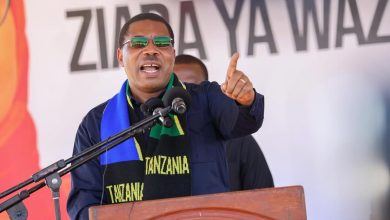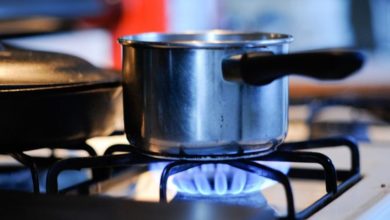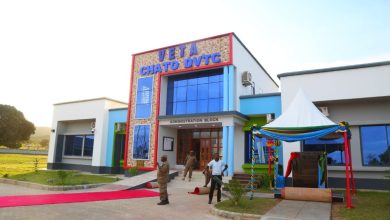EAPCE’ 25: ‘Strategise on clean energy’

DAR ES SALAAM: DEPUTY Prime Minister and Minister for Energy Dr Doto Biteko has urged East African member states to develop actionable strategies for promoting clean cooking and natural gas as key solutions for reducing carbon emissions and boosting economic growth.
Dr Biteko made the remarks yesterday in Dar es Salaam while opening a pre-conference workshop ahead of the 11th East African Petroleum Conference and Exhibition 2025 (EAPCE’25) which starts today and is expected to be concluded on Friday this week.
“By using natural gas, which is cleaner than petrol and diesel, we will not only lead the energy transition but also promote cost savings. Compressed Natural Gas (CNG) users can save approximately 40 to 50 per cent in fuel costs compared to fossil fuels for the same distance,” Dr Biteko said.
He further noted that embracing natural gas would help maximise foreign currency reserves by reducing fuel importation. Dr Biteko said the persistent effects of climate change included extreme weather events and biodiversity loss, largely driven by carbon emissions from biomass fuel.
He underscored the importance of discussions and collective action among EAC member states and partners to accelerate the transition to cleaner energy.
Citing a 2023 report by the International Energy Agency, he pointed out that 81 per cent of households in sub-Saharan Africa still rely on traditional energy sources such as firewood, contributing significantly to deforestation.
Despite global efforts, including the ratification of the Paris Agreement, many countries continue to face similar energy challenges.
Dr Biteko commended African nations, including Tanzania, for proactively integrating climate change mitigation measures into their legal and regulatory frameworks, ensuring adherence to global climate commitments.
He said most of the legislations emphasise on green economy, low carbon emission and sustainable development.
Dr Biteko said Tanzania under President Samia Suluhu Hassan has taken serious measures to climate mitigation including co-chairing the Paris summit on clean cooking in Africa held in 2024 where 26 governments expressed their commitment to advancing green cooking in the continent by endorsing the High Level Clean Cooking Declaration.
At home, he said the country in May 2024 launched the Clean Cooking Energy Strategy aiming at ensuring access to clean cooking reaches 80 per cent of the population by 2034 from the current 10 per cent.
Regionally, he said the East African Community (EAC) established the EAC Climate Policy and Regulations which responds to the call of action to climate mitigation in which member states including Tanzania adopted the National Energy Compact during the Africa Energy Summit in January this year.
Under the compact, Tanzania targets 8.3 million households to get connected to electricity by 2030.
He said Kenya adopted the Energy Transition and Investment Plan; Uganda adopted its Energy Transition Plan while the Democratic Republic of Congo (DRC) also adopted the Energy Compact during the January’s energy summit in Dar es Salaam saying all the initiatives combined provide a clearer transition to the Eastern bloc.
In the related development, he emphasised the importance of member states to enhance the use of natural gas as fuel in vehicles that are part and parcel of the transition.
He said Tanzania has opened door for the private sector to invest in Compressed Natural Gas (CNG) infrastructure and establishment of workshop for conversions.
Reflecting Tanzania’s transition journey, he said the use of CNG started in 2009 as pilot project which today has been transformed into a mother station and other six filling stations have been constructed in Dar es Salaam and eight more are under construction.
He said to date the country has 12 workshops for installing CNG system.
Commenting on the CNG consumers’ side, Tanzania Online Driver Association’s Representative, Ms Florah Mwankali called on the government to reduce vehicle conversion fees from the current 2m/- to at least 1.5m/- and reduction of inspection fees from 50,000/ to 20,000/- to allow many people to convert the vehicles from fossil fuels to gas.
She said her gas-powered tax spends only 14,000/- to cover a distance of 200 kilometres compared to only 40km at similar cost for petrol therefore gas is economical.
EAC’s Deputy Secretary General Infrastructure, Productive, Social and Political Sectors, Mr Andrea Aguer urged investors and development partners to catch massive opportunities emerging in the energy transition by leveraging the Eastern bloc’s market of over 300 million people.
He expressed his optimism that tremendous opportunities in the petroleum sector lie ahead after the conference, urging all participants to exchange experience and forge partnerships.
ALSO READ: Dr Biteko calls on women to lead the clean cooking campaign
Yesterday the pre-conference workshop brought together delegates in the energy sector from Kenya, Uganda, Rwanda, Burundi, Somalia and Tanzania to chart the course for a just energy transition in East Africa.
East African nations account for a negligible portion of global CO2 emissions compared to industrialised countries, primarily due to their historically limited industrial development and subsequent lower fossil fuel consumption. Nevertheless, they remain acutely vulnerable to climate change impacts, including droughts, floods, sea-level rise and shifts in agricultural productivity.





